ANDREA WEISS is professor of film/video in the media and communication arts department at the City College of New York. She is an Emmy Awardwinning documentary filmmaker and the author of Paris Was a Woman: Portraits from the Left Bank (1995) and Vampires and Violets: Lesbians in the Cinema (1992).
The University of Chicago Press, Chicago 60637
The University of Chicago Press, Ltd., London
2008 by The University of Chicago
All rights reserved. Published 2008
Printed in the United States of America
17 16 15 14 13 12 11 10 09 08 1 2 3 4 5
ISBN-13: 978-0-226-88672-5 (cloth)
ISBN-13: 978-0-226-88674-9 (e-book)
ISBN-10: 0-226-88672-7 (cloth)
Library of Congress Cataloging-in-Publication Data
Weiss, Andrea.
In the shadow of the magic mountain: the Erika and Klaus Mann story / Andrea Weiss.
p. cm.
Includes bibliographical references and index.
ISBN-13: 978-0-226-88672-5 (cloth: alk. paper)
ISBN-10: 0-226-88672-7 (cloth: alk. paper)
ISBN-13: 978-0-226-88674-9 (e-book)
1. Mann, Erika, 19051969. 2. Mann, Klaus, 19061949. 3. Mann family. 4. Authors, German20th centuryBiography. 5. Women authors, German20th centuryBiography. 6. ArtistsGermanyBiography. 7. Expatriate artistsBiography. I. Title.
PT2625.A42Z95 2008
838.91209dc22
[B]
2007021032
PHOTO CREDITS: All photos are from the Erika and Klaus Mann Archive, Literaturarchiv Monacensia, Munich, unless stated otherwise.
 The paper used in this publication meets the minimum requirements of the American National Standard for Information SciencesPermanence of Paper for Printed Library Materials, ANSI Z39.48-1992.
The paper used in this publication meets the minimum requirements of the American National Standard for Information SciencesPermanence of Paper for Printed Library Materials, ANSI Z39.48-1992.
IN THE SHADOW OF THE MAGIC MOUNTAIN
The Erika and Klaus Mann Story
ANDREA WEISS
The University of Chicago Press
Chicago and London

CONTENTS
PREFACE
Erika and Klaus Mann once claimed to be twins, an outright lie which betrays an emotional truth. They shared the easy intimacy and fierce loyalty of twins, empowering them to live lives that were unconventional, adventurous, and in many ways exemplary. They were vehemently anti-Nazi in a Europe swept away by fashionable Fascism. They were openly, even defiantly, gay in an age of secrecy and repression. And although they both joined the American army, they were intellectual pacifists when the entire world was at war.
These two rebellious, free-spirited children of the Nobel Prizewinning author Thomas Mann were creative artists in their own right. They were serious authors, performance artists (before the term was coined), and political visionaries whose searing essays and lectures still have relevance today. I consider them to be an extraordinary couple, even more fascinating together than either would have been alone. Born perhaps fifty years too early, Erika and Klaus Mann were so modern in their outlook and style that they strike a familiar chord with us today.
I can no longer recall the first time I heard the names Erika and Klaus Mann. They have achieved a kind of cult status in Germany today: among the youth culture for their uncompromising anti-Nazi stance, and among the gay/lesbian community for their liberated views on sexuality. All of their books are now in print in Germany, including many that were unprintable during their lifetimes. Berlin, that German capital of contradictions, is a city I adore and often consider my second home. So I knew their names and something of their reputations for a long time, but it was with my close friend Wieland Speck, roughly a decade ago, that I first entered their world. Wieland and I, both filmmakers, both guests of the Jerusalem Film Festival in the summer of 1997, sat on the veranda of the Jerusalem Cinematheque late one night and over a bottle of wine cooked up a scheme to collaborate on a film about them. That seed of an idea eventually became Escape to Life: The Erika and Klaus Mann Story, a fiction/documentary hybrid we co-directed, and my partner Greta Schiller produced, which was released theatrically in Europe in 2001 and broadcast in many countries around the world.
Wieland Specks long-term hospitality, the loan of his books for indefinite periods, his willingness to translate a confusing paragraph for me at any hour of the day or nightfor these and more, I am grateful. While we developed the film that grew up alongside of this book, Erika and Klaus Mann managed to creep into every breakfast conversation, every late-night musing on the meaning of life. At each stage of the project our collaboration pushed me to have new insights into and a better understanding of the lives of Erika and Klaus Mann.
My erstwhile writing workshop colleagues, Adam Levy and Lili Cole, read this manuscript in bits and pieces many times over in different versions, and are due my deepest thanks for all their astute and helpful critiques. Along with them I must mention David Hajdu, master word-smith, who taught me so much about nonfiction storytelling. Carolyn Dinshaw at New York University was more helpful than shell ever know, and NYUs Bobst Library was the ideal place for me to disappear for many months while I mentally occupied a far-distant time and place.
Speaking of Bobst Library, deep in the stacks on its eighth floor there is a row of bookcases roughly fifteen feet long, floor to ceiling, devoted solely to books by and about Thomas, Heinrich, Erika, and Klaus Mann. This row, which seemed quite daunting to me when I first began to read my way through it, is a tribute to the enduring literary legacy of the Mann family. In all the time I spent in Bobst Library, however, I never saw another person enter this particular row. I never was asked to return one of the many books piled high in my carrel so another library user could look at it. The Mann familys popular readership today, at one large urban university at least, doesnt begin to compare with that same familys literary stature. I hope, for Erika and Klauss sake, that this book will begin to change that.
But the library stacks yielded only a small slice of the story I wanted to learn. With Wieland I ambled through Berlin, revisiting where Erika and Klaus spent the wild years of the Roaring Twenties in Germanys Weimar Republic. We explored Munich, where they were born and grew up, and we stood on the spot where the grand Mann family villa once graced the banks of the Isar River before it was destroyed by Allied bombs. We spent enough time in Munich to see the city through their eyes and learn to love it. We visited their large country house in Bad Tlz, which the family sold for war bonds during World War I, and which is now a nunnery, and we walked down the path to the pond where they learned to swim. We wandered along the shores of Lake Starnberg, where Erika and Klaus strolled in 1927 when they decided to make their first crazy round-the-world trip. Our path took us past the castle of the Bavarian king Ludwig II, about whom Klaus wrote his sad, lovely tale The Barred Window, a personal favorite of mine. We flew to Zurich, to Hirschenplatz, where the Hotel Hirschen once showcased Erikas anti-Nazi cabaret after she could no longer perform it in Germany. Back in New York City, Greta Schiller and I lunched at the Hotel Bedford on East Fortieth Street, where so many of their romantic dramas were enacted and where they were at home for the first time since going into exile. From all these places, the ghosts of Erika and Klaus Mann called out to me, beckoned me further, teased me and taunted me before they would initiate me into their secret world.
Next page









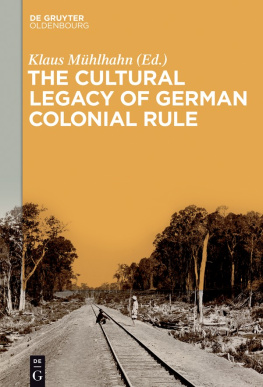
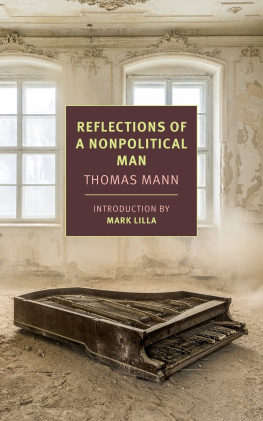
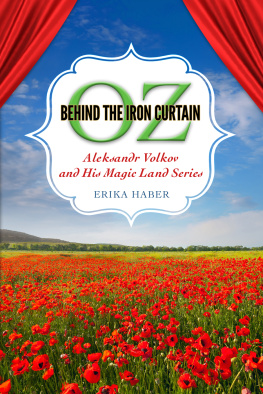
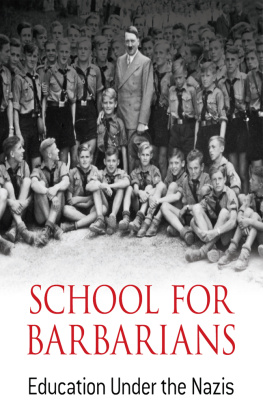

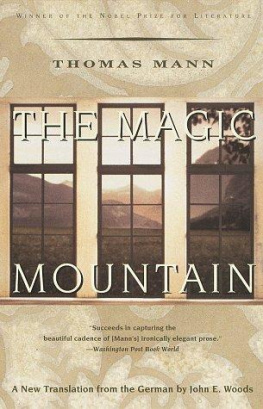
 The paper used in this publication meets the minimum requirements of the American National Standard for Information SciencesPermanence of Paper for Printed Library Materials, ANSI Z39.48-1992.
The paper used in this publication meets the minimum requirements of the American National Standard for Information SciencesPermanence of Paper for Printed Library Materials, ANSI Z39.48-1992.